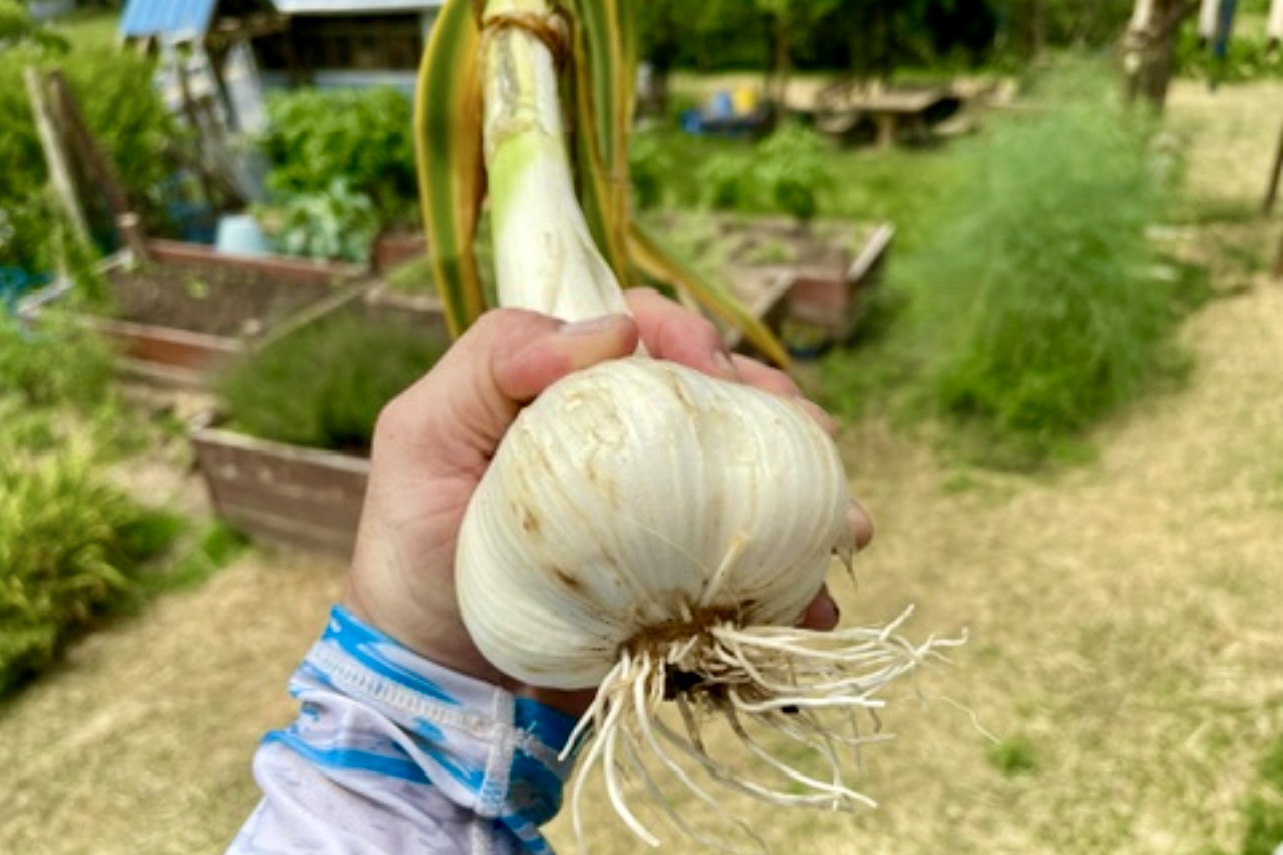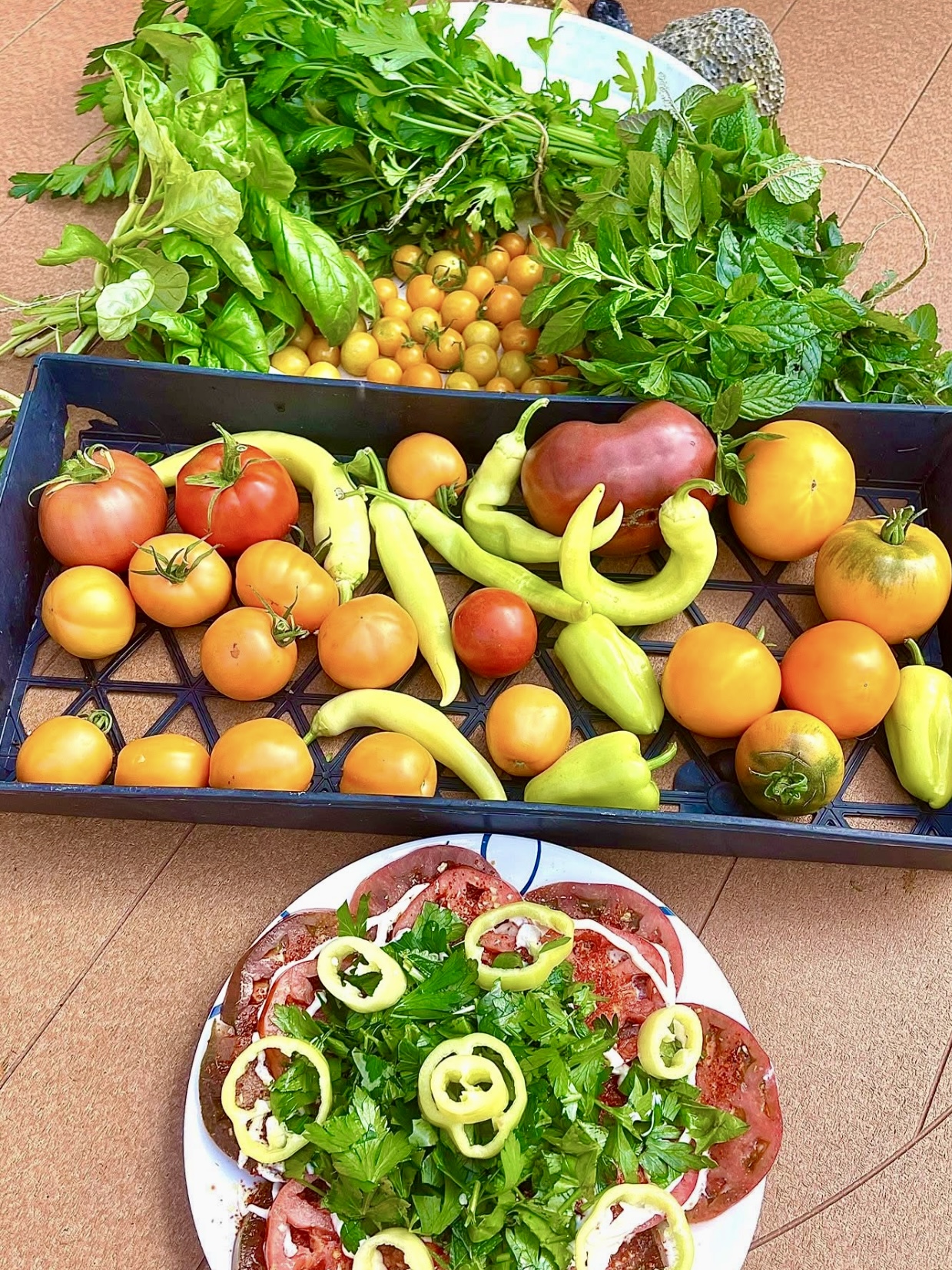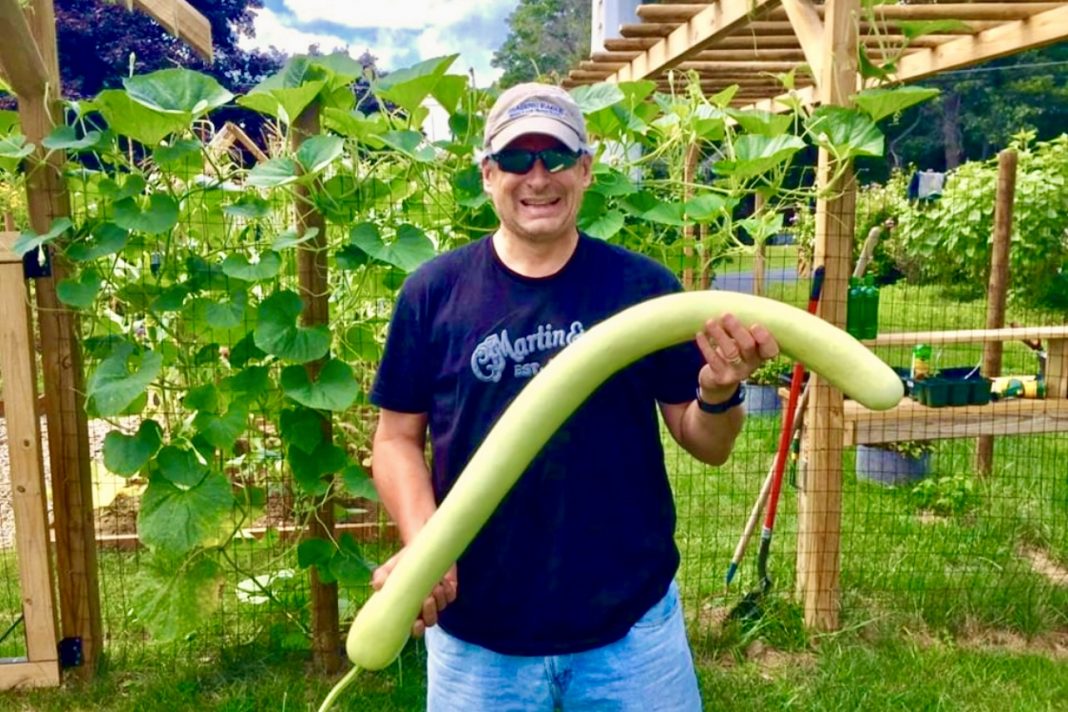As the growing season concludes, most of us are contemplating a trip to the market or grocery store to gather our fixins for the upcoming feast. Our relationship with the fresh produce is little more than selecting, paying for and preparing the food which graces our table. For the serious gardener, however, each vegetable harvested is the result of many hours of care and nurturing throughout the growing season, beginning with a seed sprouted under protected conditions in the deep mid-winter. The resulting harvest is deeply rewarding for the grower, not to mention the economic benefits of tending a garden which supplies a steady harvest of fresh and healthy gifts from the earth throughout the growing season.
Berks County resident, Dave Kline, is a highly recognized figure in the media industry with a 45-year career in radio and television broadcasting, newspaper, live theatre, live stage, internet publicity, podcast production, books, records, and cd recordings on all media delivery systems, while simultaneously enjoying a successful career of music performance. Although he has been retired from the workforce for several years, he continues to pursue many projects which demand his time and talent, with most people marveling at what seems to be an exhausting schedule, placing him in the spotlight while creating an endless stream of entertainment experiences.
The previous paragraph was exhausting for this writer to read, let alone think about having to live in those high energy shoes. How does one replenish, regroup, return to ones roots and get back in the game time and time again? An interview with Dave Kline offered an answer to this question and more.

How did you develop a passion for gardening, Dave? “I think that must have come from my early experience around the age of ten or less, of seeing my paternal grandfather Kline, as he built a greenhouse on a plot of land behind his home and grew a garden. I really enjoyed spending time with him at my grandparent’s home in Temple, just watching the joy he had in gardening. A favorite memory I have is my grandfather Clarence coming into the kitchen holding this huge radish, something you never saw before, not a little white radish, but like a football! He called me “David Lee”, and was so proud of this radish as he cut a piece off for me. At that point, something in my brain realized that it was a good thing, a worthwhile thing to plant stuff so you can eat it.”
The seeds were planted, and young David was inspired. “I would poke around the plants which started as little seeds, all dried up. You start to see miraculous life planted in rows of good stuff to eat. This was for the purpose of eating and having sustenance, saving money, being self-sufficient and independent. My mother is pure Sicilian. My great grandfather Biaggio was from a little town on the north coast of Sicily, Santo Stefano di Camastra. He came on a boat to Ellis Island. I remember my great grandmother always having pot of sauce on the stove. I remember going into their backyard south of Penn where there was no lawn, walking through a grape arbor into a garden with fig trees and with chickens running around. That made the same impression on me. This is really resilient, something of high value, to grow things like that to tend and to feed your family. It was a different experience than walking through a grocery store. Looking at a tomato; when you start growing them yourself, there is beauty of seed to soil, to nurture, to table when you can do it for yourself. Several years ago, I got to take my mother to Sicily where that came from. We went in May when everything is planted and the whole town is a big garden. He wasn’t doing anything other than what he grew up with.”
David naturally gravitated toward gardening work, and he took a job for an elderly widow, helping in her garden. “I was 12, 13, 14 years old and I had to pull out tulip and daffodil bulbs, prune lilacs, catalog all of the bulbs for a princely sum of $1 per hour. That was my brush with a career in agriculture. My mother was into flowers and herbs, and I also learned from her. Later as a teenager, I worked at Myers Pharmacy and Mr. and Mrs. Myers were wonderful people with a beautiful property. I told them that I could plant some flowers, and I got the seeds and planted a garden of zinnias for them.”
Life took over, but his passion for gardening never left him. “I was busy with work, music, and being married. I had a row in the back yard, and I planted veggies and corn. There was a time that I arrived late to a work meeting where eight people were waiting for me. When my boss asked why I was late, I replied that there was a heavy wind the night before and my corn blew over, and I had to stand it back up. He did not know what to say. It’s true. I heard about that for years! I really got into it. I got these seeds, nurtured them, I’m going to prop them up!

“During the hectic years of raising children and having a new property with grass, I started to contemplate creating a garden space while still working for a living. The Zaubergarten or Magic Garden evolved in several stages. I started with killing the grass and enriching the soil with leaves. I progressed with completely transforming the garden space to tilled soil and adding 10-inch-high raised beds. After a while I got tired of bending over, and while visiting a dairy farmer in Robesonia, I saw that she built a 4ftx4ftx4ft raised bed and I decided that this was what I was going to do, and it was really worth it! Now I am leaning in picking and it’s a joy! It’s peace, communion, and relaxation. It works for me; just enough work, rather than being a chore. I keep the front yard in flowers, and the side garden is a vegetable garden with a southern exposure. Every year is practice and a scientific experiment which has evolved into growing heirloom seeds that I buy from seed banks and harvest festivals. This season I’ve grown nine varieties of heirloom tomatoes, Suyo Long cucumbers from China, all kinds of lettuce, basil, cilantro, chives, oregano, parsley, asparagus, onions, garlic, purple brussels sprouts, peppers (both sweet and hot), zauber pumpkins, dill, figs, cucumber, red beets. Several years ago I planted gourds which I cured, and hollowed them out to create birdhouses.
Although the busiest season for gardening is coming to a close, for a serious gardener there is something to do throughout the year. “Alpha and Omega, and it never ends, no beginning and no end, a constant process. The average person begins in May. You should not plant tomatoes until after Mother’s Day. For me it is a continuous and constant cycle of growth. In November, after the harvest, I prune the garden after the killing frost has hit. Next I put the garlic bulbs in which will come up in March. All of the seeds from the heirloom tomatoes I harvest and place in my drying area to cure over the winter. In March and April, dependent upon the weather, I take the dried seeds into the workshop where I start them in growing trays with heater pads and a bubble top greenhouse setting, repotting the plants and protecting them from harsh wind and cold until they are ready to be exposed gradually to the weather of spring, and finally planted at the appropriate time in the garden.”
Dave and his wife Kathy extend the enjoyment of their harvest over the winter months through preserving through various methods. “Kathy and I marvel at the pioneers; the colonists, and settlers who spent most of their time growing food and shooting game and preserving it. Certain methods of preservation are labor intensive. We got into air drying and dehydration and pickling, jarring spaghetti sauce and preserving and fermenting cabbage in various ways. It is extremely healthy to preserve the food you grow to eat during the winter months.”
This winter Dave will be working with Harvest Moon, a self-sustaining hydroponic, fully enclosed ecosystem to grow vegetables, and heirloom tomatoes for the purpose of giving away the crop to Opportunity House.
Dave Kline is deeply rooted in Berks County where he was born and raised and where he has made significant contributions to the culture of our area. By honoring his family roots and traditions, he is able to revisit his days as a boy in the garden to find peace, inspiration, and replenishment from his busy life outside the garden gate.


